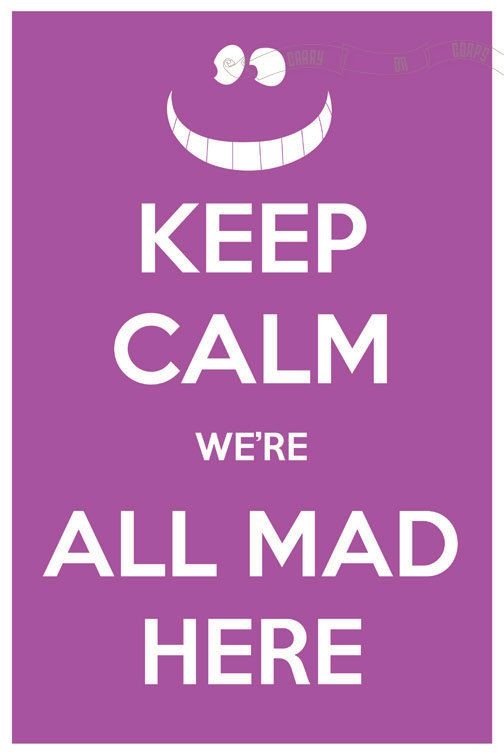Suffering automatically ends when you know
 JaySon
Florida Veteran
JaySon
Florida Veteran
Just thought I'd share this teaching by Ajahn Chah... It's some pretty serious Dharma.
"All creatures in this world are plagued by nothing other than suffering. There is only suffering disturbing the mind. Studying the Dhamma is for the purpose of utterly destroying this suffering. If suffering arises it's because we don't really know it. No matter how much we try to control it through will power, or through wealth and possessions, it is impossible. If we don't thoroughly understand suffering and its cause, no matter how much we try to ''trade it off'' with our deeds, thoughts or worldly riches, there's no way we can do so. Only through clear knowledge and awareness, through knowing the truth of it, can suffering disappear. And this applies not only to homeless ones, the monks and novices, but also to householders: for anybody who knows the truth of things, suffering automatically ceases."
From http://www.ajahnchah.org/book/Toward_Unconditioned1.php




Comments
Good stuff @JaySon .
My father was a great fan of Nietzsche and thought personal will power could control dukkha/suffering/life the universe and everything.
Wrong. As much use as Austin Powers.
Nietzsche famously went mad and influenced Hitler (in that order). One of the reason I have little time for Western Philosophy. Great thoughts. Not much pragmatism. Just clever people running about in their own heads.
The great and realised teachers like Ajahn Chah bring us back to sanity, clarity, real potential.
I'll join.
@lobster Yeah, I prefer the philosophies of Nagarjuna and Chandrakirti even though they're tough to decipher. Western philosophy has only brought me more misery. But in college it made me sound like one of them smart fellers.
@JaySon
Understood. We have to move from being a smartass to having a smart ass; putting a meditation cushion under it ...
Of course meditation is only one of the Dharma Ways but it is the jewel in the crown ...
As you say, being smart is just lip gloss. I for one will not put up with sham and shameful 'answers'. Especially my shameful shams ...
We are Buddhists.

Suffering not required.
@lobster When your ass goes numb on the cushion, it doesn't feel like such a smart ass.
Suffering automatically ends when you know
"That All Five Skandhas Are Empty."
https://www.accesstoinsight.org/tipitaka/kn/snp/snp.5.15.than.html
https://www.accesstoinsight.org/tipitaka/sn/sn22/sn22.059.nymo.html
What's important, I think, is how this works in a practical way.
Let's say depression arises in your feelings. Right there you know delusion has arisen in the aggregate of your feelings. That's the first step. Then you must find the root of the depression, which is the knot of self-grasping. You may have had this knot of self-grasping your whole life and it feels like it IS you. You realize it's not self, that your sense of "I" is a total hallucination. Knowing this, the knot of self-grasping begins to untie. Eventually you feel as if that sense of "I" tied to depression is gone and you are liberated from it.
I watched a documentary about Nietzsche. Like his father, he suffered from a degenerative brain disease. An autopsy on his father had found only half a brain left. That was likely the cause of both their madness. It may have even contributed to Nietzsche’s insights before pulling him into dementia. Penetrating as they may have been, he never really sorted it all out.
It's no surprise the Nazis appropriated him as a symbol. They did the same with the swastika, an ancient symbol, one used by Buddhist too. It’s now nearly universally associated with the Nazis. It’s ancient meaning of auspiciousness and well-being clearly missed them. They corrupted what they touched.
The documentary said Nietzsche’s last act as a non-institutionalized person was a tearfilled and pathetic attempt to free a horse from a buggy. He didn’t own the horse or the buggy, nor did he care that this unfolded on the street in plainsight of everyone. He was locked up after that--, that act of overwhelming compassion for a horse. Hitler’s last act was nothing like that. I’m not sure the Nazis understood what Nietzsche was looking for.
Who can really grasp the insights of a philosopher like Friedrich Nietzsche or a Buddha like Siddhartha Gotama without corrupting what we touch? But where Nietzsche looked, the Buddha saw. He said, “This Dhamma that I have attained is deep, hard to see, hard to realize, peaceful, refined, beyond the scope of conjecture, subtle, to-be-experienced by the wise.” Ajahn Chah: “Only through clear knowledge and awareness, through knowing the truth of it, can suffering disappear.”
I have a new name to personify the proliferation of thoughts. Nietzsche. It’s a fun name to say. “I don’t Nietzsche right now. Shhh.”
Shhhh

Suffering automatically ends when you know and accept that suffering is part of life.
When you are able to accept life as it, not as you would like it to be.
When you take in the blows, stand back up again and move on.
Because you know that suffering is part of life but not all of life.
And life goes on.
That's the first Noble Truth. You're missing the next three. The Buddha taught that there is suffering and there can be an end to suffering because it has a cause and when you uproot the cause, suffering ends. The Eightfold Path leads to the end of suffering.
The "understanding" of suffering is not done cognitively or intellectually .... it is part of the experience of being mindful.
And it is not so much that suffering stops, as that we stop being controlled by it.
An illustration: My sister's teacher (a Tibetan Geshe named Chodak Tulku Rimpoche, teaching in Minnesota) was dying of pancreatic cancer, which is one of the most painful kind. His family knew, but kept it secret from the students.
Up until two weeks before his death, he taught Tuesday nights as usual, walking into the shrine room, doing prostrations and climbing up onto the teaching platform with usual vigor. There was no difference in his calm alertness nor compassionate eyes ... the only difference was that now and then he would close his eyes for a minute and site quietly. He would then open his eyes and apologize for the interruption, stating only that he had been "talking with his teachers".
Note: in Tibetan Buddhism, all negative experiences/people are to be viewed as your "kind teachers", because those are the situations that teach you the most.
The Geshe was not free of pain, but neither was he controlled by it.
“Everything is always changing. If you relax into this truth, that is Enlightenment. If you resist, this is samsara (suffering).”
Dzongsar Jamyang Khyentse, “What Makes You (Not) a Buddhist”
This is not the same thing as the interpretation that somehow there will be no more pain in life. Although Pema Chodron points out that the more we resist emotional pain, the more it hurts.
And in the same vein, it is useful to observe people at the flu shot clinics ... the children who resist and build up their fear ahead of time vs the adults who just relax into it and never blink an eye. \
Even if we just observe ourselves when we are sobbing ... the resistance shown by ragged breath and clenched fists. It is far easier on ourselves to use relaxation and mindfulness to open up to the experience when in an unpleasant situation.
I am not missing the other three noble truths, just not mentioning them because here we are mainly discussing the first one.
When we realize conventions as merely conventions.
@pegembara, Thank you for that awesome teaching by Ajahn Amaro it gave me a minor moment of insight. I see how clinging to conventions causes suffering. I have been thinking of awakened awareness as a true self in the Brahman/Atman sense - I know see it as essenceless, beyond all limits and conventions, I'm a little bit more enlightened thanks to that. Thank you so much once again!
I found the pali term vijja intriguing from @pegembara post, looked it up. Found:
Vijja Sutta: Knowledge (excerpt)
translated from the Pali by
Maurice O'Connell Walshe © 2009
Those who know not suffering,
Nor how suffering comes to be,
Nor yet how all such suffering
To a final end is brought,
They do not know the Path
Leading to its calming down,
Cannot find the heart's release
Cannot be by wisdom freed,
With no chance to make an end,
To birth and aging they're condemned.
Those who do know suffering,
And how suffering comes to be,
Know too how all such suffering
To a final end is brought,
They who know the Path indeed
Leading to its calming down,
They can find the heart's release,
They can be by wisdom freed.
They know how to make an end,
To birth and aging no more bound.
http://www.accesstoinsight.org/tipitaka/sn/sn56/sn56.022x.wlsh.html
Do not try to become anything. Do not make yourself into anything. Do not be a meditator. Do not become enlightened. When you sit, let it be. When you walk, let it be. Grasp at nothing. Resist nothing.” – Ajahn Chah
I thought it was time for more Ajahn Chah serious Dharma. I don't know if the insight will pass, I've had moments like this before, there is still the tendency to cling in my mind but its very easy to let go of.